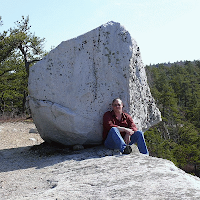Here's an excerpt from an article in the Washington Post discussing this study:
The findings are, to say the least, counterintuitive. Professors rated highly by their students tended to yield better results for students in their own classes, but the same students did worse in subsequent classes. The implication: highly rated professors actually taught students less, on average, than less popular profs.
Meanwhile, professors with higher academic rank, teaching experience and educational experience -- what you might call "input measures" for performance -- showed the reverse trend. Their students tended to do worse in that professor's course, but better in subsequent courses. Presumably, they were learning more.I don't think it's countrintuitive at all. Students hate it when professors push them. They're most happy when the class is an easy "A" The problem comes when they reach higher-level classes that require prerequisite knowledge they never learned.
Still, the popularity contest of student ratings continues to be used by college administrators to assess the effectiveness of their faculty.


No comments:
Post a Comment